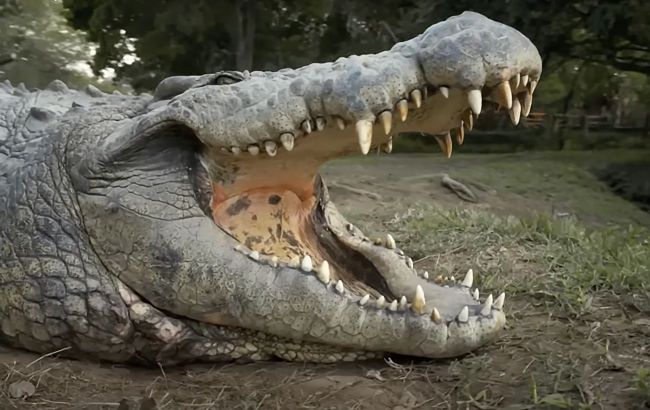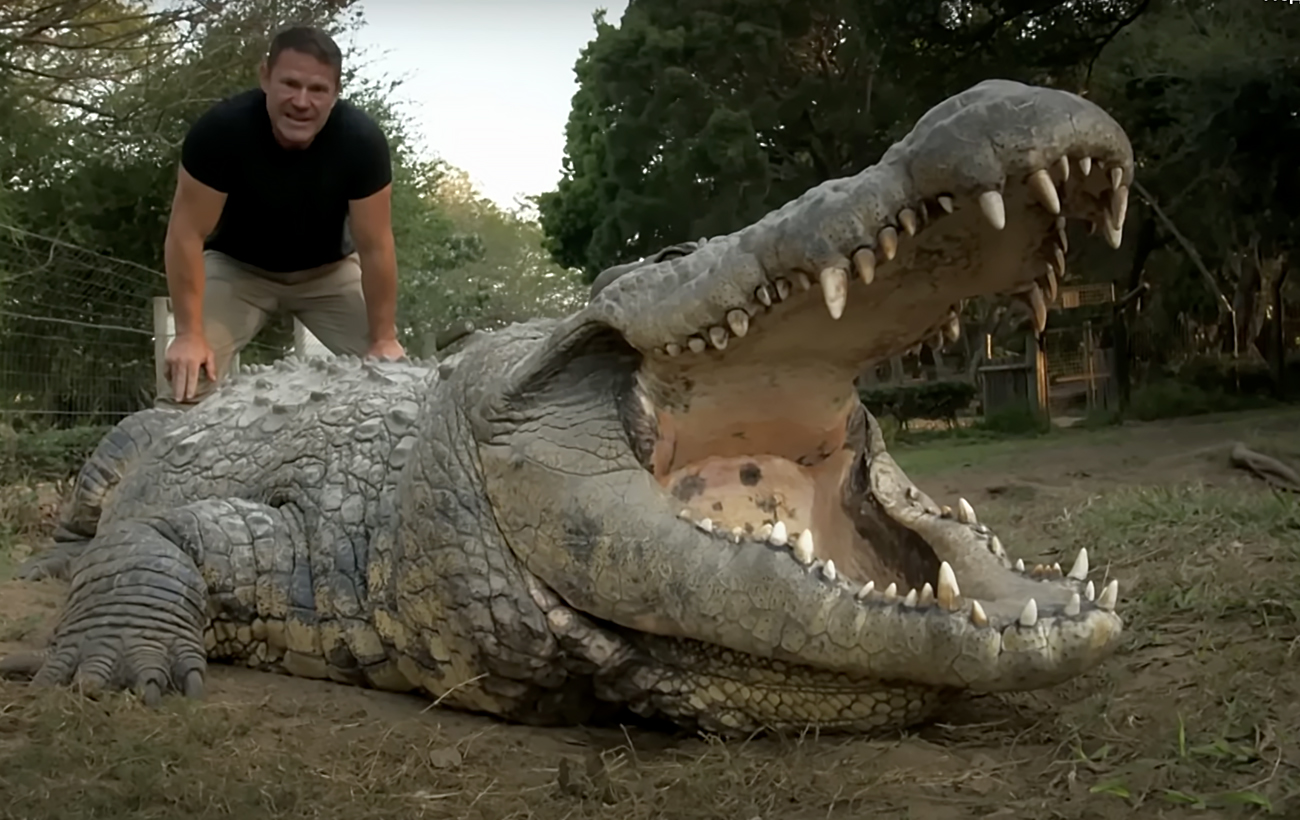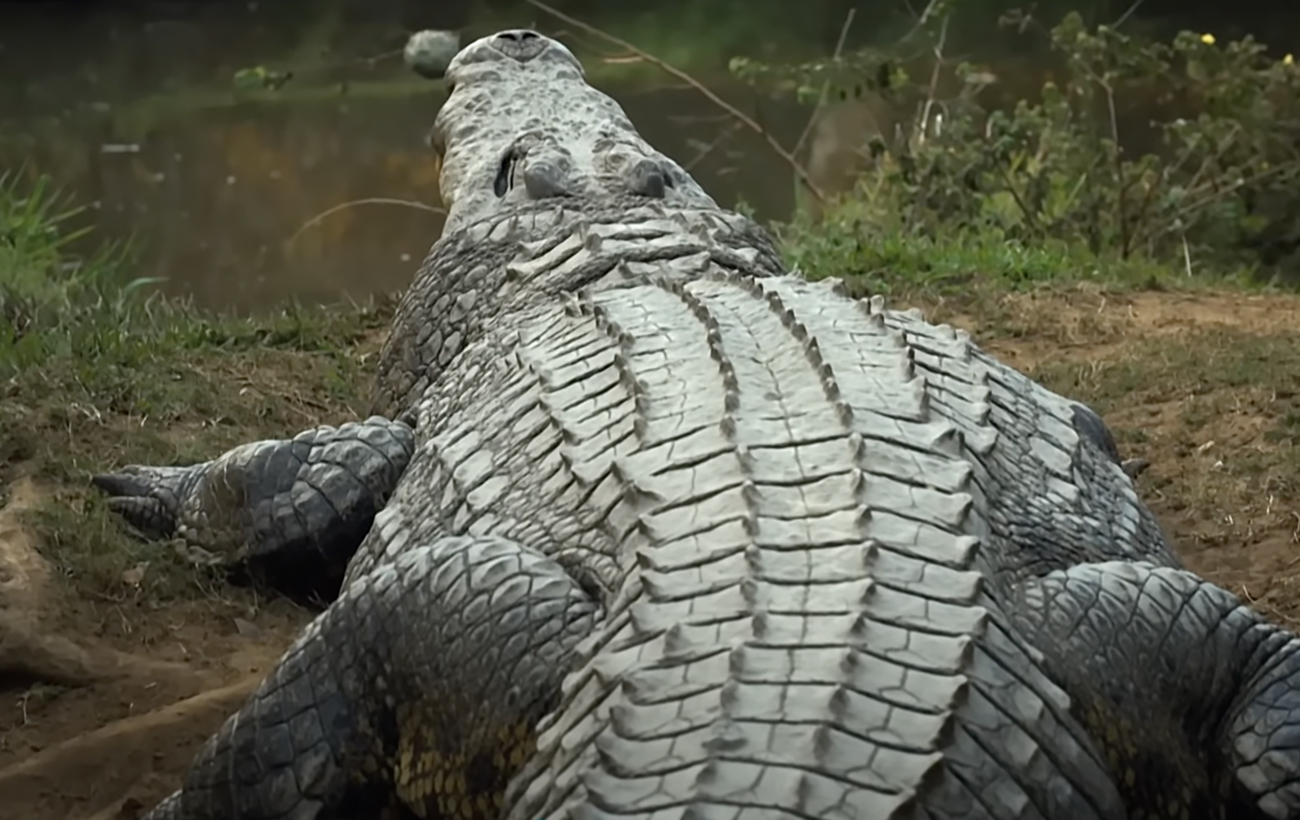World’s oldest crocodile with over 10,000 offspring: What he looks like
 What is known about the oldest crocodile in the world (Still from the video)
What is known about the oldest crocodile in the world (Still from the video)
The world’s oldest crocodile is remarkable not only for his age but also for the number of his descendants. This giant, over 100 years old, has more than 10,000 offspring. Henry is a true legend of the wild, according to the Iflscience.
How much the oldest crocodile weighs
At 123 years old, Henry is the oldest known crocodile in the world. Over the decades, Henry has grown to an impressive size. The massive crocodile measures more than 5 meters from snout to tail and weighs 700 kilograms.
To put this into perspective, an average Nile crocodile grows up to 4.5 meters and weighs around 410 kilograms. Despite the name, the species can be found across a vast region of Africa.
How old is Henry actually
According to Crocworld Conservation Center in South Africa, where he has lived since 1985, Henry was believed to have been born around 1900 in the swamps of Botswana's Okavango Delta.
Since arriving at Crocworld, Henry has mated with at least six females, leading his caretakers to estimate that, in less than 40 years, he has fathered over 10,000 offspring.
His birthday is celebrated on December 16, so he will turn 124 this year. However, his exact birth date remains unknown since he was born in the wild.
A British television show mentioned that Henry was captured in 1903 by an elephant trapper named Sir Henry. However, there is another account — Crocworld’s website states that Henry spent most of his life in the Okavango Delta.

The world's oldest crocodile named Henry (stills from the video)

The world's oldest crocodile named Henry (stills from the video)
Where Henry the crocodile lives now
He lives with another elderly crocodile named Colgate, who is around 90 years old. It’s well-known that crocodiles in captivity can live up to 100 years.
Several scientists have suggested that some crocodiles may exhibit a certain degree of negligible senescence, which describes organisms that show no signs of biological aging.
Do crocodiles die of old age
Researchers suggest that crocodiles, in theory, do not die from old age but succumb to external factors such as starvation, accidents, or illness.
It would be a mistake to assume that crocodiles are immortal. However, they demonstrate extraordinary longevity, especially compared to other animals of their size.
Scientists believe that many factors contribute to these animals' resilience. Some studies propose that crocodiles' health may be linked to the large number of different microorganisms found in their esophagus.
One study concludes: “Given the importance of gut microbiome on its host physiology, we postulate that the crocodile gut microbiome and/or its' metabolites produce substances contributing to their ‘hardiness’ and longevity.”
Earlier, we reported on which animals are the most resilient on our planet.
We also discussed which eight animals are the best stress relievers.

